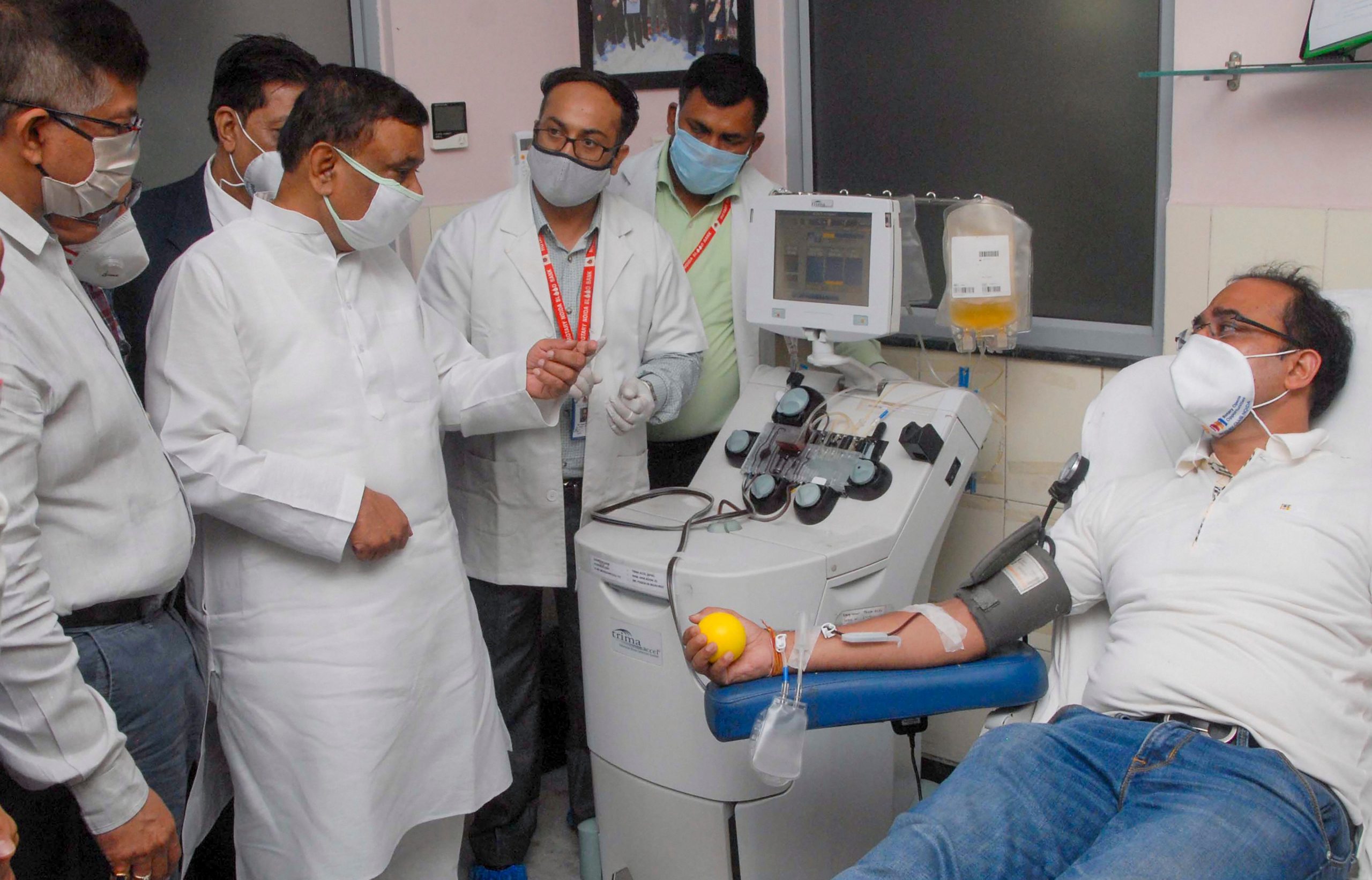The Government of India, on Saturday, listed out a set of
instructions related to donating plasma for COVID-19 patients in Delhi. The list,
while taking care of questions related to documentation, also attempted to
clear up questions as to who will and will not able to donate plasma in the
Delhi Plasma Bank.
“If you are planning to donate plasma to a COVID positive
patient in Delhi, here are the do’s and don’ts you should know about!
#IndiaFightsCorona #Unite2FightCorona”, GOI captioned the tweet.
Also read: Exposure risk same at 6 or 60 feet: MIT study challenges distancing norms
The list asks potential donors to carry an RT-PCR test
report from a test conducted within four months of the day of donation, as well
as an Aadhar card of the donor.
It also guides the donor to give plasma 14 days after the
patient receiving a COVID-19 positive report in case they are asymptomatic, or after
14 days of symptom resolution, in case the patient is symptomatic.
Convalescent plasma donated by previous COVID-19 patients have
proven to be a tested method of COVID-19 treatment in India. The plasma is
transfused to not the disease reach critical levels.
Also read: In Centre vs Delhi, people are on the losing side
Furthermore, transfusion of plasma reportedly stops COVID-19
from a stage known as cytokine storm, where the immune system of the body
essentially starts to attack itself.
Delhi, in recent weeks, has faced a massive upsurge of COVID-19
cases, further complicated by lack of hospital beds and oxygen cylinders in the
city, leading to an acute health crisis.
Delhi Chief Minister Arvind Kejriwal on Monday announced
that vaccinations would be available to everyone above the age of 18.
Also read: 14-day curfew in Karnataka from tomorrow 9 pm; public transport shut
“Today we have given the approval for the purchase of 1.34
crore vaccines. We will make an effort to ensure that it is purchased soon and
administered at the earliest to people”, Kejriwal was quoted by ANI as saying.
He also directed attention towards the vaccination of those
below the age of 18.







